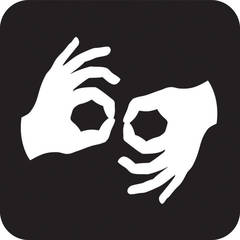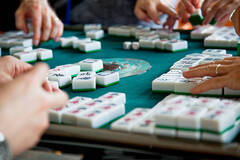High Holy Days 2024


High Holy Day Services Schedule 2024 ~ 5785
High Holy Days 2024 ~5785
Soon the air will become crisper, the leaves will change, and the days will grow shorter. And soon we will come together as a sacred community to celebrate the new year of 5785. I truly hope that the holidays are a celebration this year, for we have endured so much sadness and pain over the last year.
Read more from Rabbi Daniel Fellman
Back in the year 2020, there was one thing that united many of us. It wasn’t the pandemic itself, although maybe it was a byproduct thereof. It wasn’t on Zoom… thankfully. Even if we never said it, we needed a break from unmuting ourselves and asking others to click their own mute buttons. It was a game that captivated so many of us, that even though it was created by one single programmer, The NY Times eventually purchased it for over a million dollars. It was WORDLE.
Read more from Cantor David Reinwald
High Holy Day Services Schedule
S’LICHOT at Rodef Shalom Congregation
Saturday, September 28
7:30 PM Rabbi Michael Zedek, author of Taking Miracles Seriously: A Journey to Everyday Spirituality,
will be our guest speaker.
9 PM S’lichot Service at Rodef Shalom Congregation
SERVICE OF REMEMBRANCE
Sunday, September 29
2:30 PM Service of Remembrance with Temple David at Temple Sinai Memorial Park, 7740 Saltsburg Road, Plum, PA
ROSH HASHANAH
Wednesday, October 2
5:15 PM Erev Rosh HaShanah Tot Service (Snacks & Fun at 5 PM)
6 PM Erev Rosh HaShanah Dinner (Reservations required; seating is limited)
7:45 PM Erev Rosh HaShanah Service 
Thursday, October 3
8:15 AM Rosh HaShanah Tot Program with Danie Oberman
9 AM Rosh HaShanah Service for Youth & Families 
11 AM Rosh HaShanah Morning Service 
3:30 PM Tashlich Service & Reverse Tashlich Cleanup in Frick Park—Rain day: Sunday, Oct. 6, 2 PM
(Cards of Admission not required.)
6 PM NextGEN (Young Adult) Rosh HaShanah Dinner
Friday, October 4
10 AM Rosh HaShanah 2nd Day Morning Service
YOM KIPPUR
Friday, October 11
5:15 PM Kol Nidre Tot Service (Snacks & Fun at 5 PM)
7:45 PM Kol Nidre & Shabbat Evening Service 
Saturday, October 12
8:15 AM Yom Kippur Tot Program with Danie Oberman
9 AM Yom Kippur & Shabbat Morning Service for Youth & Families with sermon by
Rabbi Daniel Fellman 
11 AM Yom Kippur & Shabbat Morning Service with sermon by Rabbi Emeritus Jamie Gibson 
1 PM Yom Kippur Beit Midrash
• 1 –2 PM Jewish Journey Interviews with David Johnson
• 2:30 –3:45 PM Beit Midrash Discussions
4 PM Yom Kippur Minchah Afternoon Service 
5:15 PM Yom Kippur Yizkor & N’ilah Service 
Yom Kippur Break Fast (a light snack to break your fast) will follow N’ilah.
Please note times are approximate on Yom Kippur afternoon.
SUKKOT
Wednesday, October 16
5 PM Soup, Salad, & Sandwiches in the Sukkah
6 PM Erev Sukkot Service in the Sukkah
Thursday, October 17
10 AM Sukkot Morning Service at Rodef Shalom
7 PM Brotherhood Potluck in the Sukkah & Football in the Falk Auditorium
Friday, October 18
5:30 PM Tot Shabbat Service & Tot Dinner in the Sukkah
Saturday, October 19
7 PM Sensory Havdalah in the Sukkah
Sunday, October 20
7 PM NextGEN (Young Adult) Pizza in the Hut
Monday, October 21
5:30 PM WoTS Potluck & Schmooze in the Sukkah
Tuesday, October 22
12 PM SAGES Tea Party in the Sukkah with Cantor David Reinwald
SIMCHAT TORAH
Thursday, October 24
10 AM Simchat Torah Morning Service with Yizkor Service at Temple Sinai
5:15 PM Simchat Torah Dinner Honoring New Students & New Members
6:30 PM Simchat Torah Service with the Temple Sinai Band & Consecration of New Students
 American Sign Language interpreter provided.
American Sign Language interpreter provided.
Livestream and Zoom links will be provided closer to the dates above. Cards of Admission required for all attendees at all services unless noted. Tot Services and programs are complimentary; contact Danie Oberman for reservations.
what are the High Holy Days?
The High Holy Days are a period that spans nearly two months and might better be called the “Season of Return.” Throughout this time, our rituals and services try to guide us back to the best versions of ourselves, which often gets lost in the busyness of life. Our many observances encourage us to pause and reflect, so that we return our various relationships to wholeness and renew our commitment to righteous living.
Elul (אלול)
Change rarely happens overnight, especially when we are the ones trying to break old, unhealthy habits and develop new, healthy ones. The month of Elul gives us time to reorient ourselves to our personal missions and visions so that we can identify where we’ve succeeded and where we’ve fallen short. We offer S’lichot prayers that remind us of the qualities embodied by our ancestors and the divine attributes that we might want to emulate. In Sefardi tradition, S’lichot begins at the beginning of Elul; in Ashkenazi tradition, S'lichot starts at the end of Shabbat about a week before Rosh HaShanah. During Elul there is also a practice of reciting Psalms 27 and 130, symbolically asking God to guide us back to the path of righteousness.
Rosh HaShanah (ראש השנה)
Our preparation in Elul leads us to Rosh HaShanah on the 1st day of the month of Tishrei, which celebrates the creation of the world and God’s sovereignty. We eat round challah to remind us of the cycle of the year and a crown. We hear the blasts of the shofar that announce the presence of God in our midst. The shofar’s penetrating sound rouses our lazy souls to do the work of repentance.
We call upon God as a loving and forgiving parent who only wants the best for us.
Ten Days of Repentance (עשרת ימי תשובה Aseret Y’mei T’shuvah)
The ten days from the beginning of Rosh HaShanah to the end of Yom Kippur invite us to repair the mistakes of the past year and commit to doing better. One of the rituals during this time is Tashlich, which we often do on the afternoon of Rosh HaShanah. During Tashlich we try to unburden ourselves of our failures and missteps by casting sticks, pebbles, or birdseed into flowing water. (People have often used bread for Tashlich, but it harms the fish and birds and pollutes the water.) This period also includes the Fast of Gedaliah, which takes place on the 3rd of Tishrei. During the daylight fast, we mourn the assassination of the Judean governor Gedaliah by other Jews and remember how important it is for us to support each other and our community. The Shabbat between Rosh HaShanah and Yom Kippur is called Shabbat Shuvah and includes special insertions into prayers that ask God to remember us for goodness and inscribe us in the Book of Life.
Yom Kippur (יום כפור)
By the time we reach Yom Kippur, we have hopefully done much of the work of repair to return our human relationships to wholeness. If so, then the services of Yom Kippur focus on how to bring wholeness to our relationship with the Divine. With a full sundown-to-sundown fast from food, drink, sex, cosmetics, and leather; simple clothes (often white); and a day spent in prayer, we ask God to forgive us for the harm we have caused and to guide us toward a better life. The final blasts of the shofar at the end of Yom Kippur mark the Days of Repentance but reverberate within us so we continue
the work.
Sukkot & Sh’mini Atzeret-Simchat Torah (סכות ושמיני עצרת-שמחת תורה)
The High Holy Days don’t end with Yom Kippur but continue with the festival celebrations of Sukkot and Simchat Torah. On Sukkot we celebrate our many blessings—it’s called Z’man Simchateinu, the Time of Our Joy. We build sukkot, temporary structures with sturdy walls but a porous roof, to remind us to enjoy what we have despite the impermanence of life. We are commanded to “dwell” in the sukkah for seven days, which the rabbis of old understood as eating meals there. You’re also welcome to study, work, and even sleep in it, too! We also shake the lulav, a bouquet of date palm, willow, and myrtle, and etrog (a lemon-like fruit) to acknowledge God’s presence all around us and the gift of the fall harvest.
The Torah also mentions a holiday called Sh’mini Atzeret that’s observed eight days after Sukkot begins. We combine that holiday with a celebration of the Torah called Simchat Torah. During Sh’mini Atzeret-Simchat Torah, we sing and dance with the Torah scrolls. We also read the last chapters
of the Torah and begin again with the first chapters.
From the beginning of Elul through the end of Simchat Torah, we have finally come back full-circle—to beginning of the year to the beginning of the Torah, and to our truest selves.
Mon, October 27 2025
5 Cheshvan 5786
High Holy Day Resource Center
Make reservations for Erev Rosh HaShanah Dinner, Oct. 2, 6 PM
Read the High Holy Day Issue of ChaiLights
Submit a NEW Roll of Remembrance Listing
Donate to High Holy Day Live Streaming & High Holy Day Pulpit Flower Funds
Request a Courtesy Valet Parking Permit
Request High Holiday Courtesy (Reciprocal) Seating
Download Guest Cards of Admission Form
Purchase Guest Cards of Admission (Must be logged into your Temple Sinai Account)
Contact Us
Temple Sinai
5505 Forbes Avenue,
Pittsburgh, PA 15217
Upcoming Events
-
Monday ,
OctOctober 27 , 2025 Hartman Learning Group
Hartman Learning Group
Monday, Oct 27th 6:00p to 7:30p
Do you want to learn more about Israeli politics and culture, the relationship American Jews and Israelis share (or don’t)? Do you want to dig into a bit of biblical and rabbinic text? -
Monday ,
OctOctober 27 , 2025 Temple Sinai Mahjong Club
Temple Sinai Mahjong Club
Monday, Oct 27th 7:00p to 9:00p
Do you play mahjong or have you ever wanted to learn? Here's your chance! We'll start with a three-part lesson and then jump into regular games. -
Tuesday ,
OctOctober 28 , 2025Rosh Chodesh Group — Cheshvan (offsite)
Tuesday, Oct 28th 7:00p to 9:30p
All Temple Sinai women are welcome! Please join us for learning, community, and inspiration. -
Wednesday ,
OctOctober 29 , 2025Evening Meditation with Rhonda Rosen (online; onsite 1st Wed of month)
Wednesday, Oct 29th 6:00p to 7:30p
Members of this group have a full range of experience, from beginning meditators to those with a mature daily practice. We work on cultivating the skills of mindfulness, concentration, and absorption in silence. Contact Rhonda Rosen at rhonda.k.rosen@gmail.com for the Zoom link. -
Friday ,
OctOctober 31 , 2025Pre-Oneg @ Rodef Shalom Congregation
Friday, Oct 31st 5:30p to 6:00p
Join us for treats and conversation after the service.
Shabbat Times
This week's Torah portion is Parashat Lech L'cha
| Shabbat, Nov 1 |
Erev Hanukkah
| Sunday, Dec 14 |
Privacy Settings | Privacy Policy | Member Terms
©2025 All rights reserved. Find out more about ShulCloud
